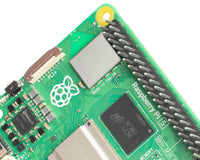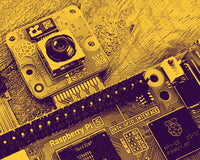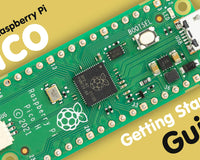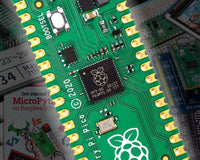
A cliff-face adventure, a Pi-controlled fly colony, a DIY oscilloscope and news of the Big Birthday Weekend in today's Raspberry Pi Roundup
Happy New Year!
Best wishes for 2017 in all your endeavours, whether hacking, spending time with family or just generally living life to the full! We're now back on the blogging trail and we've got some great projects and news to share with you.
Cliff Face Adventures

South African group Bateleur decided that simply purchasing their latest album from iTunes was too easy. So, they took a Raspberry Pi, uploaded their album to it and set it to transfer the files to a USB stick when a “secret whistle” was heard. They embedded the Pi inside a semi-transparent fake rock shield and placed the package, that they’ve called “The Nest“ … wait for it… part-way down Table Mountain in Cape Town! If you forget your USB stick, you can also plug directly into the Pi and listen via the exposed headphone jack. You can see a video of how they did it below. Unfortunately, someone has since vandalised The Nest and it no longer functions. Typical!
Come Fly (Colony) With Me

David Bowen, who is an Associate Professor of Sculpture and Physical Computing at the University of Minnesota, Duluth, has created a project called FlyAI. In this artificial intelligence experiment, Bowen has established a fly colony inside a transparent globe and is using a piece of learning software called TensorFlow. The Raspberry Pi captures images of the fly environment and then processes it through image recognition libraries and TensorFlow to determine if a fly was present in the photograph. If the fly is determined as being present, a pump delivers water and nutrients to the colony. If the fly is not definitely there, no nutrients are delivered. The system will run indefinitely, just to see what happens. You can read more about the system on Bowen’s blog or watch a video below.
Oscilloscope

Advitya Khanna, Jeff Witz and Danna Ma teamed up for their final year project on a Cornell University course, Designing with Microcontrollers. They have created a combination digital oscilloscope and function generator that runs an interface on a Raspberry Pi and takes readings and generates functions via a PIC32 chip over the SPI bus. This is a great example of technology being used to do what it’s good at: the Pi does the front-end stuff, whilst the real-time capabilities of the PIC are utilised for readings.
You can read their final project documentation here
Big Birthday Weekend
And last but not least...

The Raspberry Pi Big Birthday Weekend is on 4th-5th March next year at Cambridge Junction. Tickets are now on sale and are free for under-16s and just £5 per day for everyone else. Get your tickets here.





